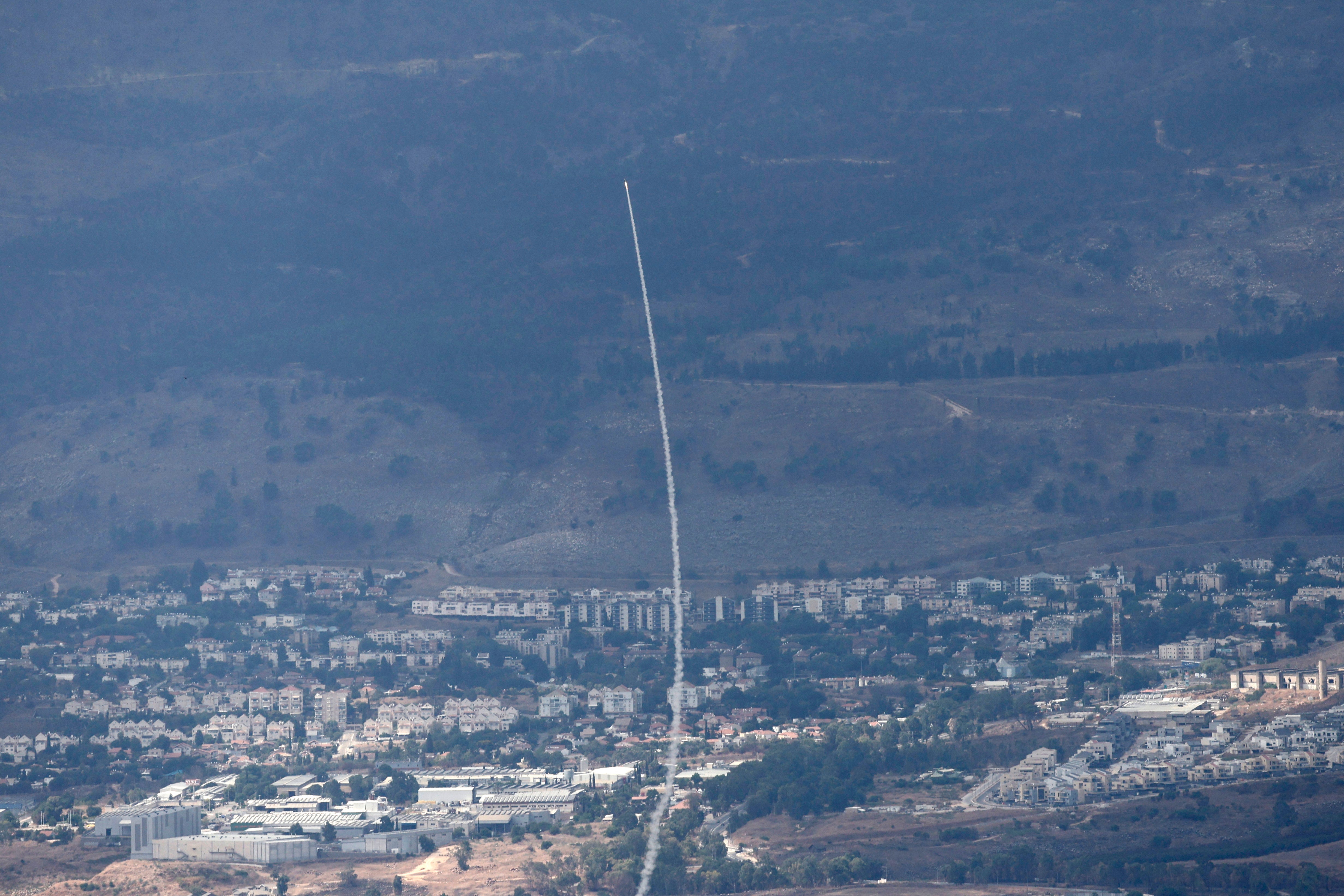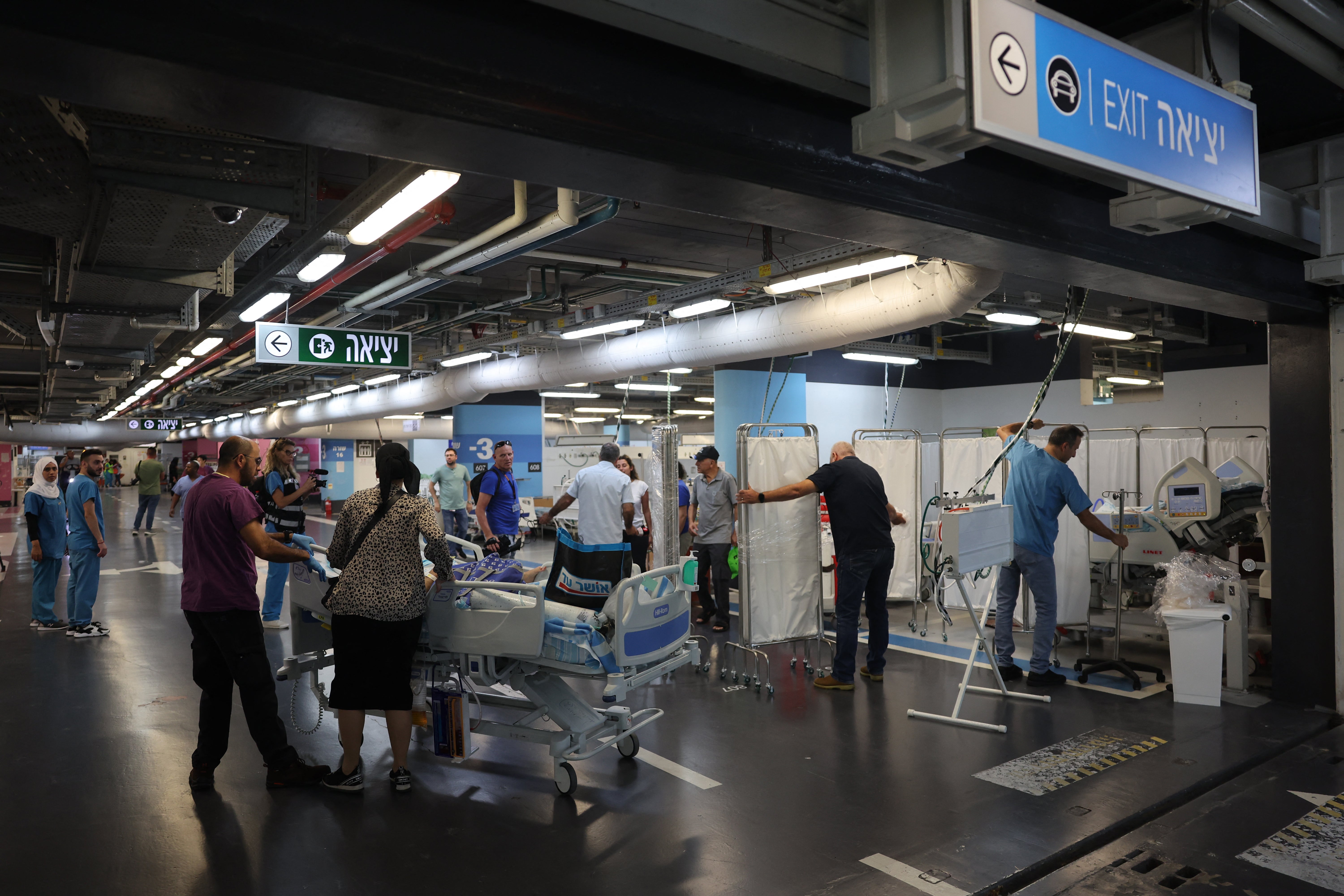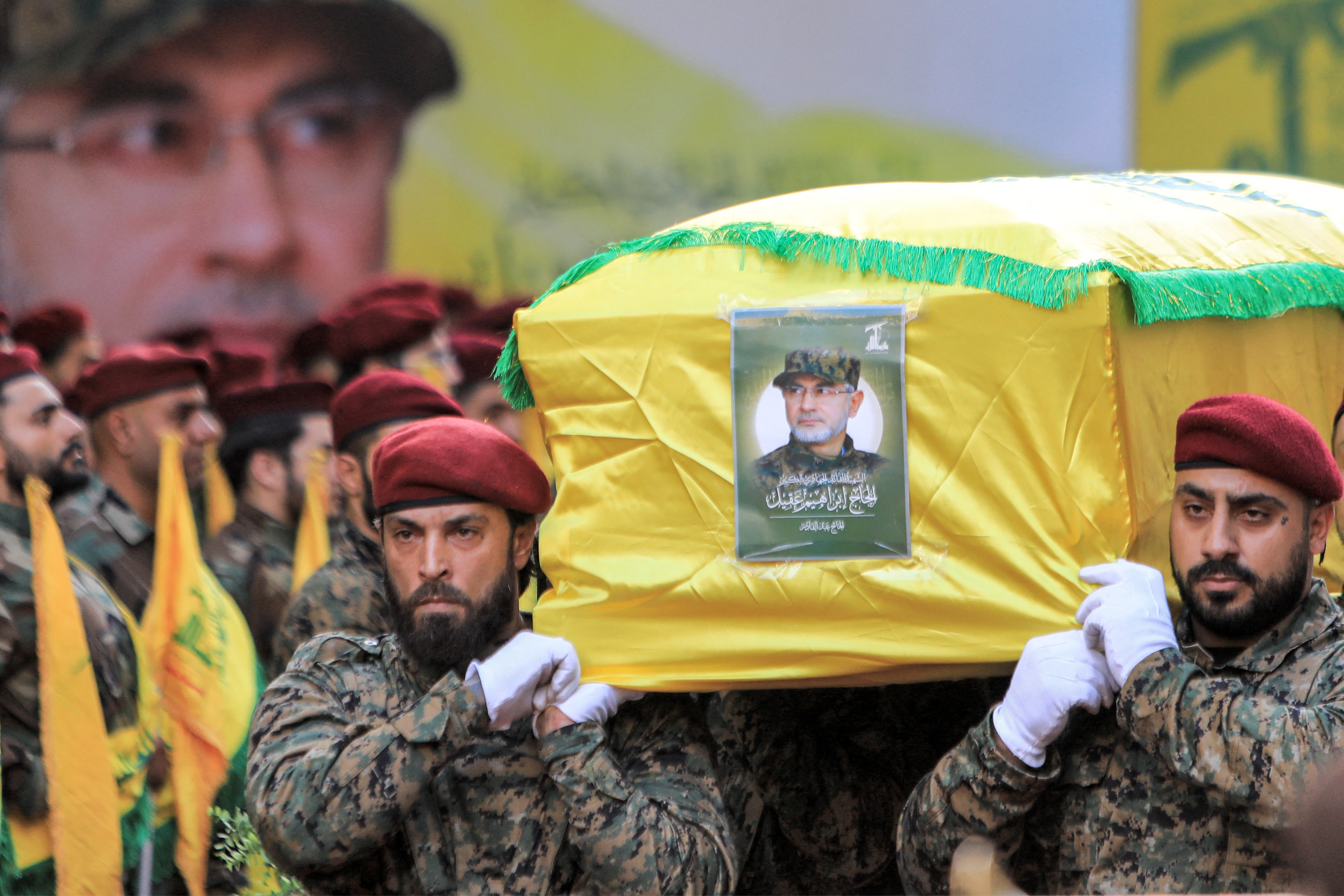Hezbollah declares ‘open-ended battle of reckoning’ with Israel and fires more than 100 rockets
Air raid sirens across northern Israel sent hundreds of thousands of people scrambling into shelters

Your support helps us to tell the story
From reproductive rights to climate change to Big Tech, The Independent is on the ground when the story is developing. Whether it's investigating the financials of Elon Musk's pro-Trump PAC or producing our latest documentary, 'The A Word', which shines a light on the American women fighting for reproductive rights, we know how important it is to parse out the facts from the messaging.
At such a critical moment in US history, we need reporters on the ground. Your donation allows us to keep sending journalists to speak to both sides of the story.
The Independent is trusted by Americans across the entire political spectrum. And unlike many other quality news outlets, we choose not to lock Americans out of our reporting and analysis with paywalls. We believe quality journalism should be available to everyone, paid for by those who can afford it.
Your support makes all the difference.Hezbollah launched more than 100 rockets across northern Israel on Sunday as a senior leader declared an “open-ended battle of reckoning”, with both sides appearing closer than ever to all-out war.
Some of the rockets landed near the city of Haifa; one struck near a residential building in Kiryat Bialik, wounding at least three people and setting buildings and cars on fire.
It followed Israeli strikes on Lebanon that have killed dozens, including a veteran Hezbollah commander, and an unprecedented attack targeting the group’s communications devices.
Air raid sirens across northern Israel sent hundreds of thousands of people scrambling into shelters.

Prime minister Benjamin Netanyahu said Israel would take whatever action was necessary to restore security and allow people to return to their homes.
“No country can accept the wanton rocketing of its cities. We can’t accept it either,” he said.
Lebanon’s health ministry said three people were killed and another four wounded in Israeli strikes, without saying whether they were civilians or combatants.
Hezbollah’s deputy leader Naim Kassem said his group is now in an “open-ended battle of reckoning” with Israel.
“We admit that we are pained. We are humans. But as we are pained – you will also be pained,” Kassem said at the funeral of top Hezbollah commander Ibrahim Aqil.
He said the rockets fired on Sunday were only the beginning, vowing to destroy Israel’s economy.
It came after an Israeli airstrike in Beirut on Friday that killed Aqil and dozens of others, including women and children, and a sophisticated attack on Hezbollah that caused thousands of pagers and walkie-talkies to explode just days earlier.
Aqil had been on the US most wanted list for years over his alleged role in the 1983 bombing of the US embassy in Beirut and the taking of American and German hostages in Lebanon during the civil war in the 1980s.
In the United States, White House national security spokesperson John Kirby remained hopeful of a peaceful resolution, saying Washington had been “involved in extensive and quite assertive diplomacy”.
In a separate development, Israeli forces raided the West Bank bureau of Al-Jazeera, which Israel banned earlier this year, accusing it of serving as a mouthpiece for militant groups. The allegations were denied by the pan-Arab broadcaster.

Israel and Hezbollah have traded fire since the outbreak of the war in Gaza nearly a year ago, when the militant group began firing rockets in solidarity with the Palestinians and its fellow Iran-backed ally Hamas.
The low-level fighting has killed dozens of people in Israel and hundreds in Lebanon, and displaced tens of thousands on both sides of the frontier.
Until recently, neither side was believed to be seeking an all-out war, and Hezbollah has so far stopped short of targeting Tel Aviv or major civilian infrastructure. But in recent weeks, Israel has shifted its focus from Gaza to Lebanon.
Hezbollah has said it will only halt its attacks if the war in Gaza ends, as a ceasefire there appears increasingly elusive.
The war in Gaza began with Hamas’s 7 October incursion into Israel, in which Palestinian militants killed around 1,200 people and took around 250 others hostage. They are still holding around 100 captives, a third of whom are believed to be dead.
More than 41,000 Palestinians have been killed, according to Gaza’s Hamas-run health ministry. It does not say how many were fighters, but claims that women and children make up more than half of the dead.
Associated Press and Reuters contributed to this report
Join our commenting forum
Join thought-provoking conversations, follow other Independent readers and see their replies
Comments